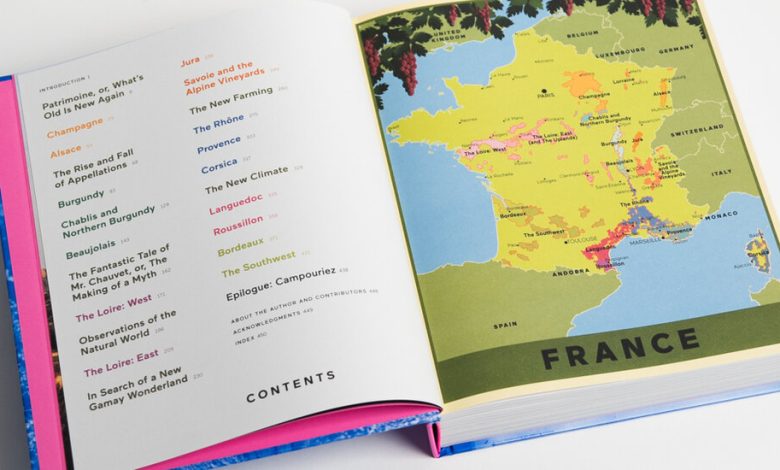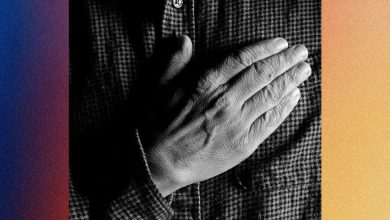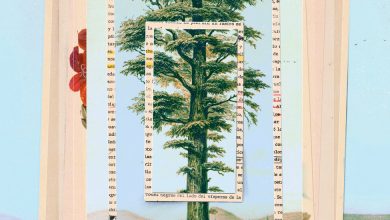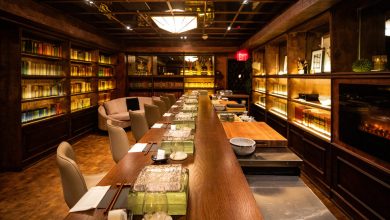A Fresh Look at French Wine, From the Inside Out

When Jon Bonné set out in 2014 to write a book on the contemporary wine culture of France, he didn’t grasp the vast nature of the changes that had transformed the country over the last 20 years, or what those changes meant for the rest of the wine-producing world.
What he learned surprised him, and the result nine years later is “The New French Wine: Redefining the World’s Greatest Wine Culture,” an important two-volume work that was published this spring.
“I thought what was new was going to be on the fringes,” he said in a telephone interview. “I didn’t realize the change was everywhere.”
Wine is a global phenomenon, consumed and grown on all seven continents, even Antarctica. Yet anyone seeking to understand wine in the slightest must reckon with France. While Italy makes more wine annually and the United States drinks more wine, no country has done more than France to create the archetype for good wine.
From France came grapes known the world over, like cabernet sauvignon, pinot noir, syrah, chardonnay and sauvignon blanc. The French gave us notions that govern the way we think about wine, like terroir, the idea that good wine can express the qualities of its place of origin.
They created the modern appellation system, which much of the winemaking world has imitated. And if they did not necessarily invent wine techniques like barrel-aging or making Champagne-style sparkling wines, they demonstrated their potential and perfected best practices.
“When changes happen in Burgundy, it impacts chardonnay and pinot noir all over the world,” Mr. Bonné said. “So much of the wine industry brings its roots back to France.”
Great books have been written in recent years about single French regions, like Burgundy, Bordeaux and Champagne. But Mr. Bonné is the first since 2002, when Andrew Jefford’s “The New France” was published, to try to describe the French wine culture as a whole.
Mr. Bonné, a former wine editor of The San Francisco Chronicle, spent years traversing France, visiting regions and producers. He tried to make sense of how and why French wine has evolved since the turn of the century.
“The New French Wine” is a far bigger and more ambitious work than his last, “The New California Wine.” Mr. Bonné argues, essentially, that in order to understand French wine, you need to understand French culture. “C’est compliqué,” he writes. There are contradictions and inconsistencies which the French are forever trying to reconcile as they both yearn for order and resist it. This is a terrific book not only about wine but about France.
It’s not a reference book, but something better: an opinionated, thought-provoking work that uses wine as a vehicle for cultural history. The best way to understand French wine, in Mr. Bonné’s view, is not by examining the nuts and bolts of wine production or by encyclopedically assessing producers. It’s by understanding the historical, cultural and economic forces driving decision-making, not just in wine but the country. He comes at this from the proverbial view at 30,000 feet and with his boots on the ground.
Understanding French wine, Mr. Bonné writes, requires getting past the powerful mythology of an immutable France, both in terms of its agrarian culture and its culinary habits. “La France Profonde,” for example, the notion of the essence of France residing in a pastoral countryside peopled by hardworking “paysans” — proud people tied to their land — is beloved by politicians trying to strike a chord with constituents, just as American politicians pay homage to the idea of American Exceptionalism.
This rural culture has largely disappeared, as it has in many western countries. Small villages and towns have hollowed out, losing their vital institutions as young people move into the cities looking for more rewarding, less physically taxing jobs.
It’s a process, really, that began long ago with industrialization, hastened by depressions, wars and phylloxera, the scourge of aphids that nearly destroyed European vineyards in the late 19th century. But it has greatly accelerated, Mr. Bonné argues, in recent decades.
At the same time, French habits have changed. Statistics demonstrate the rapid decline in France’s consumption of wine. It’s not that the French are no longer interested in wine. But its role has changed.
Once, French workers might have consumed a liter or two a day of mediocre wine that was probably closer to 10 percent alcohol than today’s standard of 13.5 to 14 percent, hearkening back to days when wine was safer to drink than water.
No longer. The French, like almost everybody in historic wine-drinking nations, are drinking less but better. They are concerned with health and wellness, with drunken driving and with moderation. Demographically, France is no longer a country of white Catholics but far more diverse, with many citizens who don’t drink at all.
“Wine is simply no longer a foundational part of growing up French,” Mr. Bonné writes. “The idea of wine as an everyday staple has increasingly evolved to the notion of wine as a small pleasure.”
Mirroring the culture, the French wine industry is smaller, but producing better wine. Vast tracts of vineyards in the middle of the country, which once produced oceans of plonk, have either been pulled out or gone fallow, a necessary process that has caused great social and economic disruption. The market for this wine no longer exists. Other countries around the world can do it better and cheaper.
Wine has evolved from a cultural way of life to a sort of boutique industry, he writes. Forward-thinking vignerons laid out a route to the future that included turning away from the chemical farming that held such allure for a weary nation after World War II, less technological and manipulative winemaking, smaller production and more precise expressions of terroir.
The institutions governing France’s appellation system as well as local officials who enforce the rules, groups formed almost a century ago for the idealistic purpose of rooting out fraud and ensuring that consumers got what they paid for, became the biggest advocates for automation and chemical farming. In many ways, Mr. Bonné writes, natural wine was an understandable reaction to rigid authorities who blocked both progressive movements and efforts at personal expression.
Mr. Bonné’s section on natural wine is fascinating. He is clearly conflicted about it, recognizing the widespread and salutary influence natural wine has had around the world. He laments what he calls its “sandbox insularity” and defensiveness about wine flaws.
The region-by-region analysis in the “Narrative” volume, is crucial to understanding Mr. Bonné’s selection process for the winemakers included in the “Producers” volume. People well versed in French wine may be surprised by the omissions of some excellent producers, but he does include many little-known ones worth seeking out, a better strategy than simply repeating famous names from the pantheon.
“The New French Wine” is well-written and evocative. Mr. Bonné conveys a lovely, atmospheric sense, whether of La Dive Bouteille, an annual fair for natural wine producers, or of the less-traveled French countryside. His historical interludes on subjects like the genesis of the appellation system or the evolution of organic farming are clear and cogent.
Not everybody will be convinced by all facets of the book. His argument, for example, that many Languedoc appellations were drawn up as a convenience based on the networks of cooperatives there makes historical sense. But his sociological argument that natural wine tends toward cliques because of a cultural need to belong to a group — “to be a French introvert is to be suspect” — will no doubt draw pushback.
I would love to see how the French respond to this book, which so far has only been published in English. Will they resent his American presumption to explain France? Or will they acknowledge that Mr. Bonné, like a modern-day Tocqueville, has presented an insightful mirror to their culture?
It’s difficult, in our globalized wine world, to focus on any one country in a vacuum. Yet if any country has earned that attention, it’s France. Mr. Bonné has done a beautiful job shining the light.
Follow New York Times Cooking on Instagram, Facebook, YouTube, TikTok and Pinterest. Get regular updates from New York Times Cooking, with recipe suggestions, cooking tips and shopping advice.





